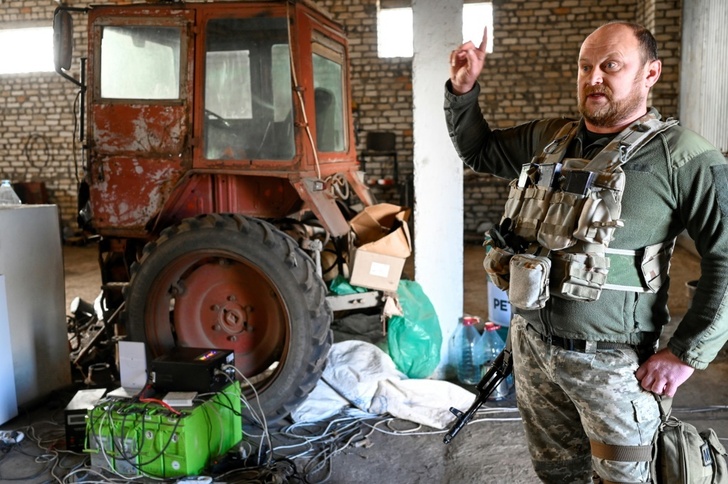Few took Elon Musk's tweeted threat to stop funding Starlink in Ukraine as seriously as the commander in charge of communications along much of the southern front.
The world's richest man last month took to his favourite social media platform -- which he has since bought -- to wonder why he should keep providing Ukraine with free satellite internet service.
The temperamental mega-billionaire appeared to change his mind a few days later.
"The hell with it," Musk wrote after his initial threat created a geopolitical furore and underscored the Pentagon's growing dependence on private space technology.
"Even though Starlink is still losing money and other companies are getting billions of taxpayer dollars, we'll just keep funding the Ukrainian government for free."
Major Roman Omelchenko is still not sure if Musk's second tweet was ironic or if he really did intend to keep paying for the Ukrainian army's main line of communication.
He just knows that Starlink's loss would leave him scrambling during the brewing battle for Kherson.
"If we lose it, it will be a serious blow to our means of communication," the 59th brigade's communications chief said in an interview conducted at a secret location along the southern front.
"It would be very difficult without it."
- Cult status -
Musk gained cult status in Ukraine by sending in thousands of Starlink terminals in the first days of Russia's invasion.

Their role became even more important when Russia began to target Ukraine's key infrastructure with long-range missile strikes.
A loss of power usually shuts down most cell phone service and complicates even basic communications on the ground.
The only other alternatives for soldiers are walkie-talkies and older types of satellites dishes that take much more time and effort to set up.
"We still have those in reserve," Omelchenko said of the older technology.
"But you have to keep tuning it constantly. Starlink tunes itself. You don't have to do it manually. It is very simple and very powerful."
- Undetectable -
The terminals' dishes link up to Musk's constellation of satellites by feeds that Omelchenko said are almost impossible for the Russians to detect.
The dishes are then wired up to basic routers that create small wifi spots.
Therein lies the danger.

The hotspots thus need to be set up in covered locations than can mask the wifi signals.
But the entire system is uniquely simple to use.
Omelchenko said soldiers can set up a functioning satellite feed on the battlefield within minutes.
This then helps connect everyone from remote drone operators to soldiers and commanders across the war zone.
- 'Thank you' -
Many interpreted Musk's tweets as an effort to put pressure on the Pentagon to foot at least a part of the Starlink bill.

Musk's SpaceX venture put the cost of operating the system in Ukraine over the coming 12 months at $400 million.
Omelchenko said he would prefer not to guess Musk's real intentions.
"It is up to him to decide if he keeps paying for it or not," said the 45-year-old career soldier.
"In either case, I just want to say thank you. I am still grateful because he helped us a great deal in the war against the Russian aggressor."
zak/dt/yad
© Agence France-Presse
Your content is great. However, if any of the content contained herein violates any rights of yours, including those of copyright, please contact us immediately by e-mail at media[@]kissrpr.com.
Source: Story.KISSPR.com

